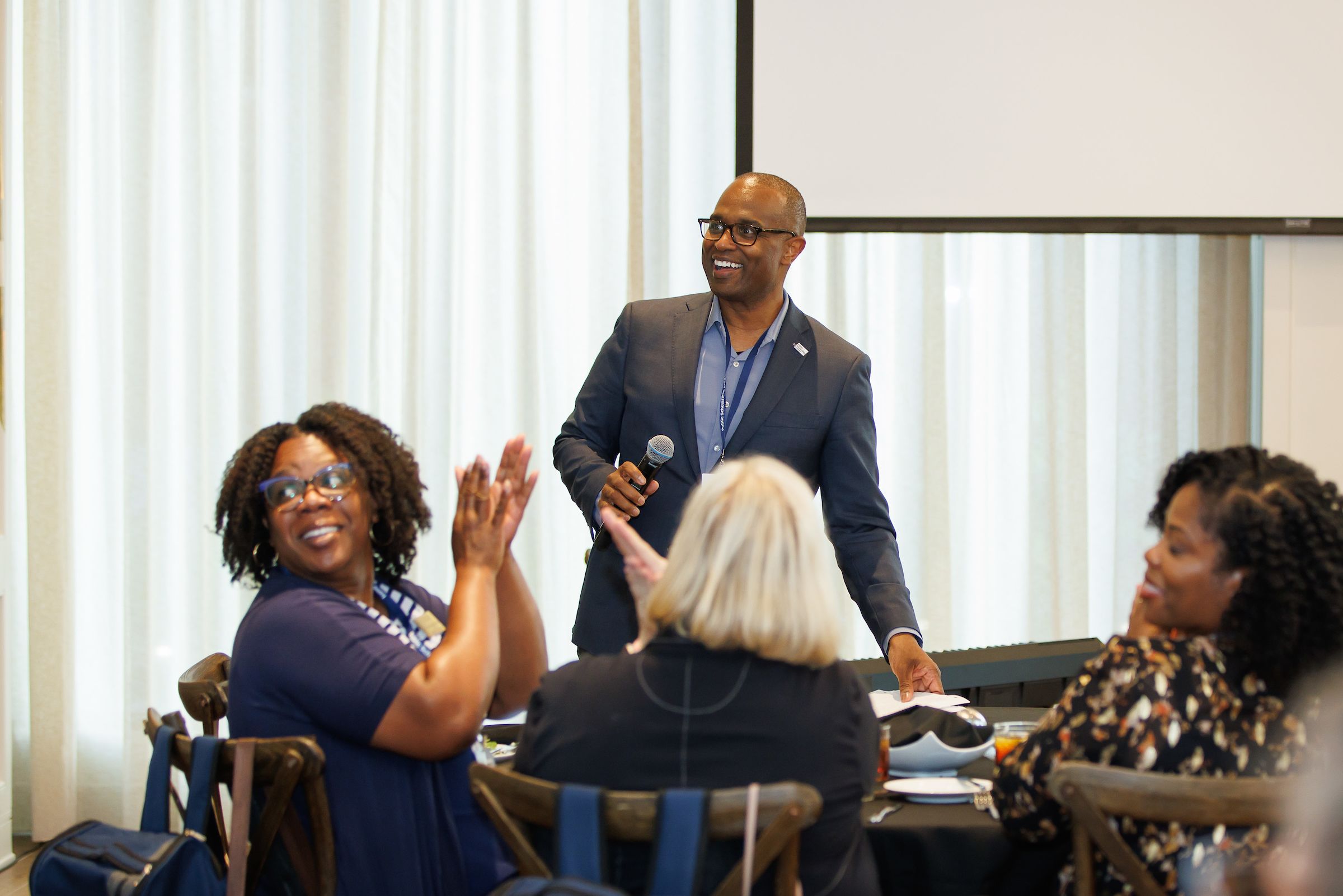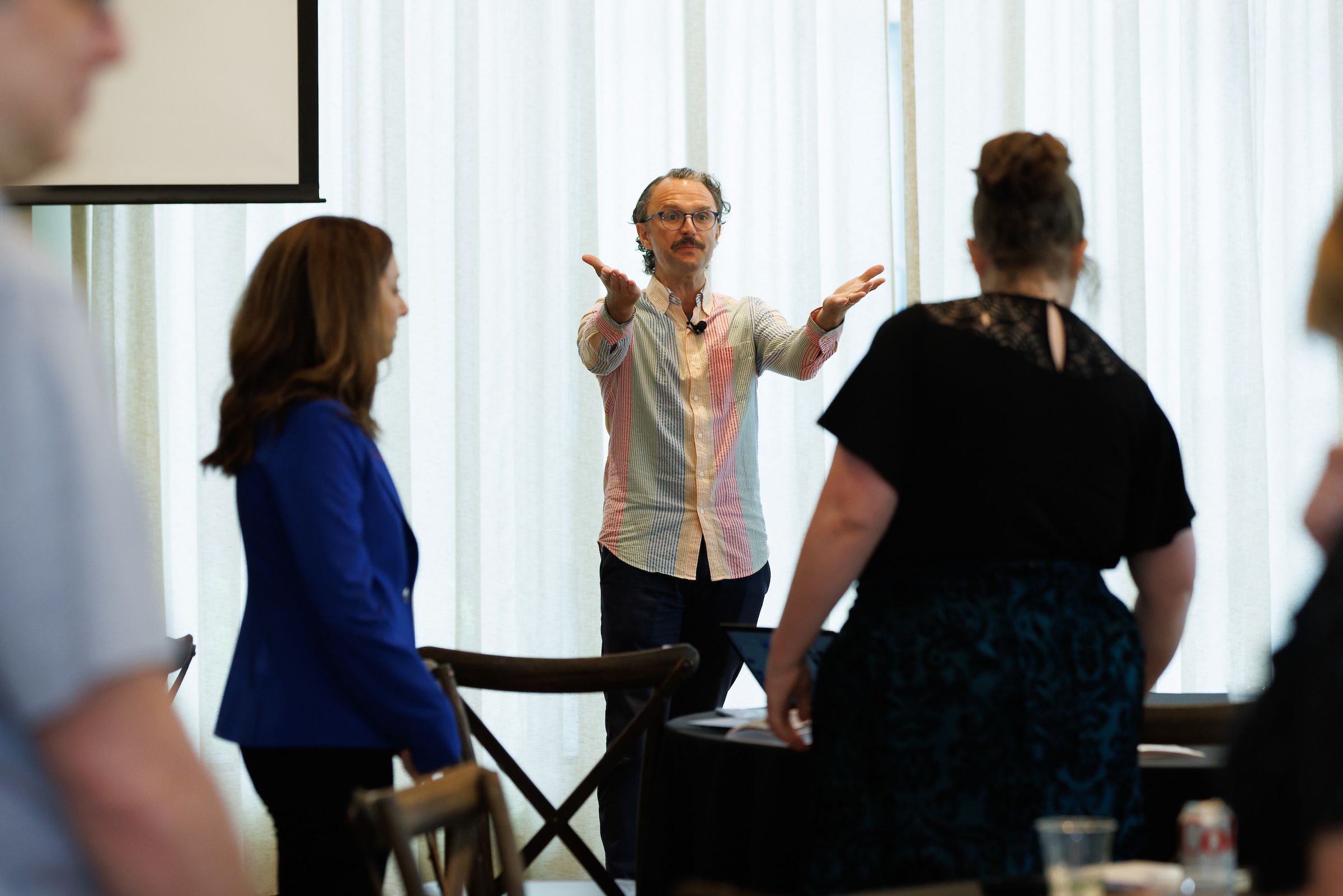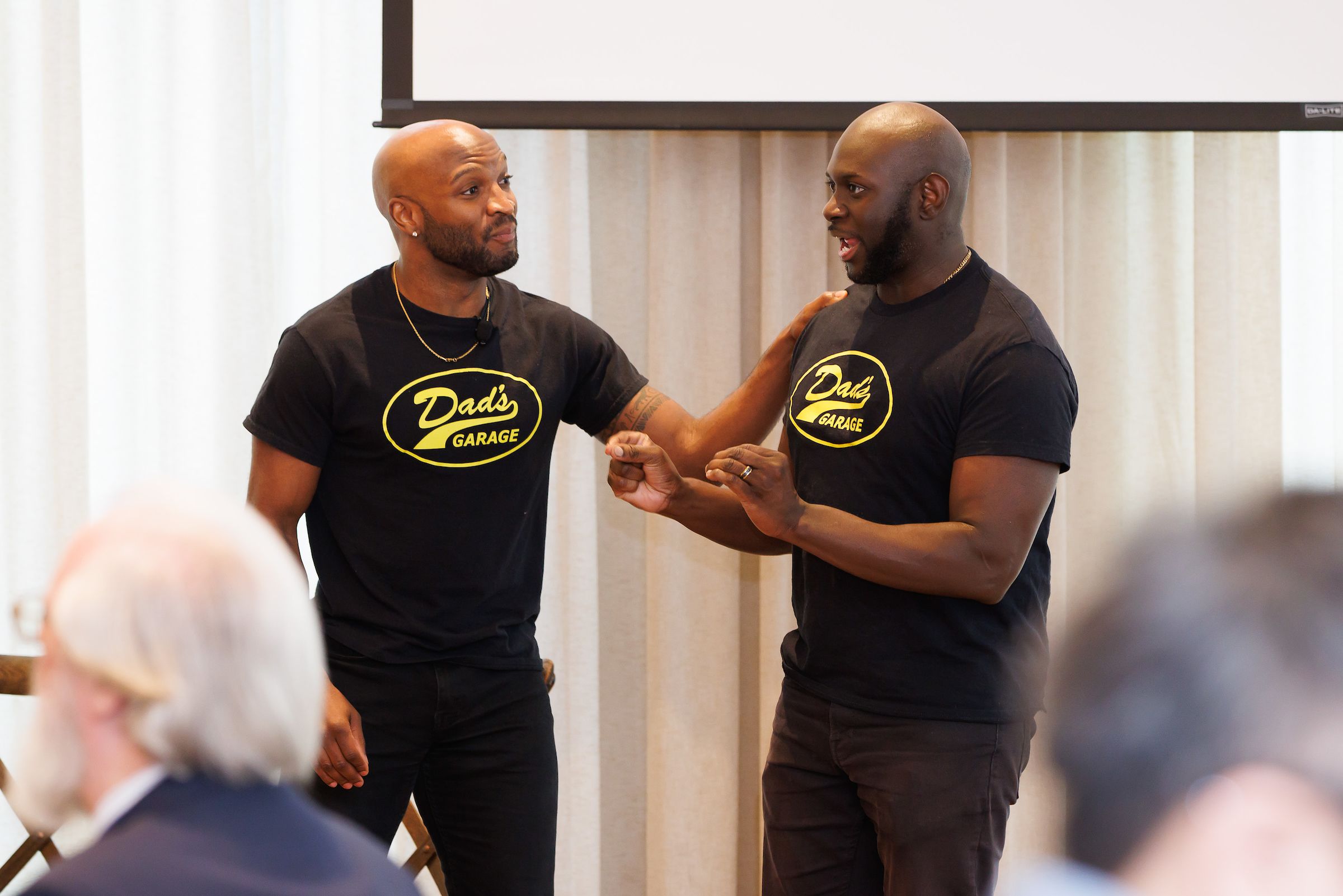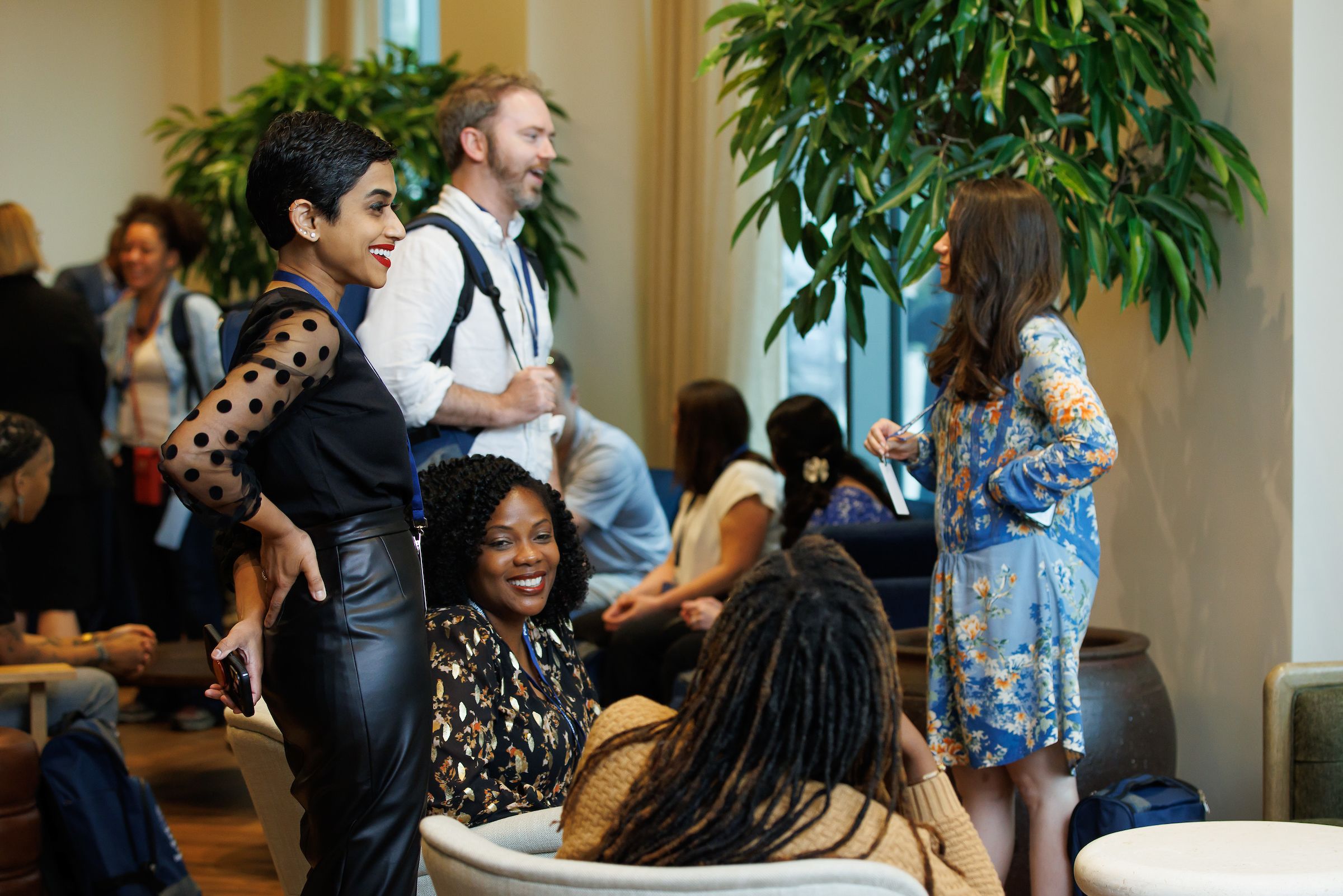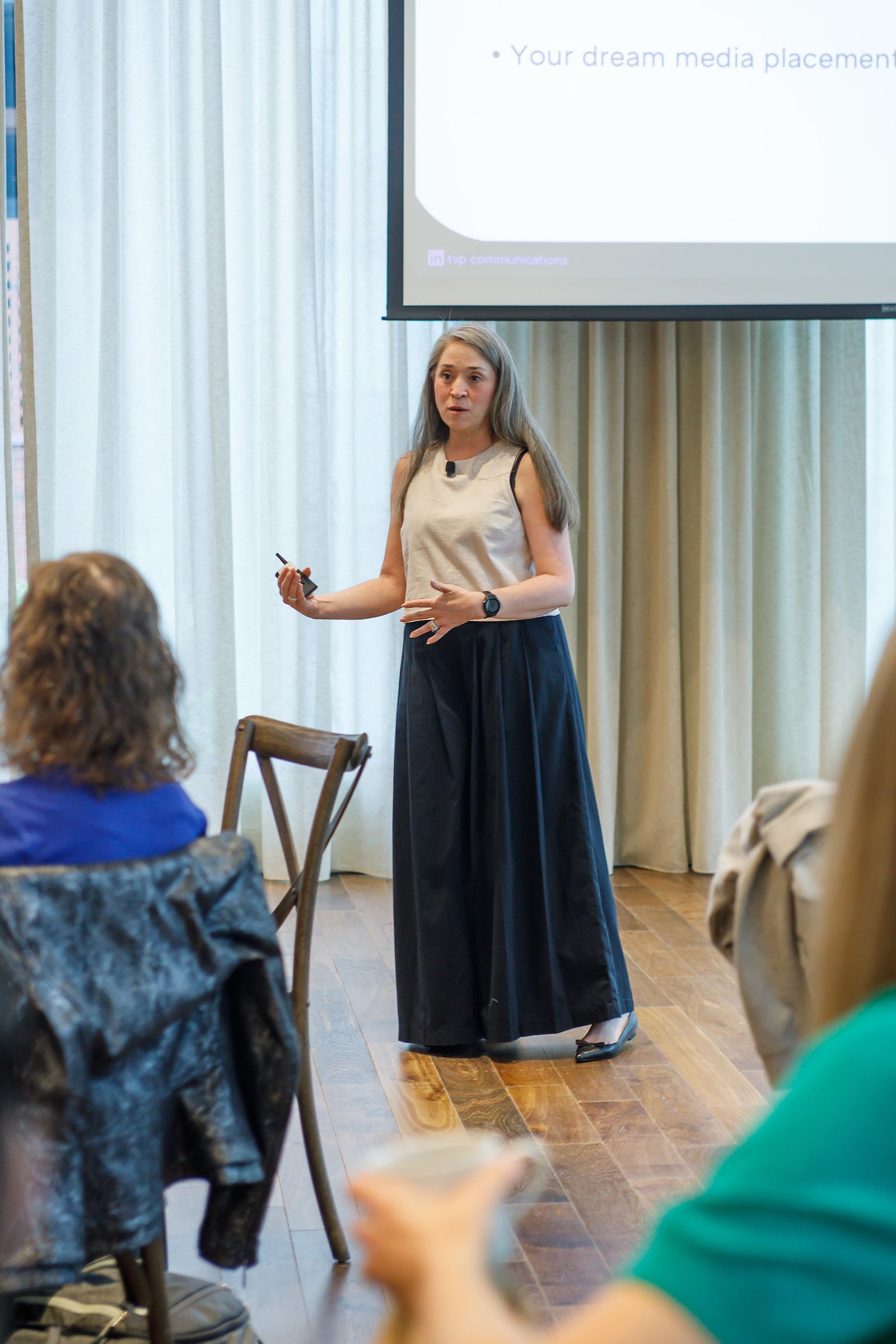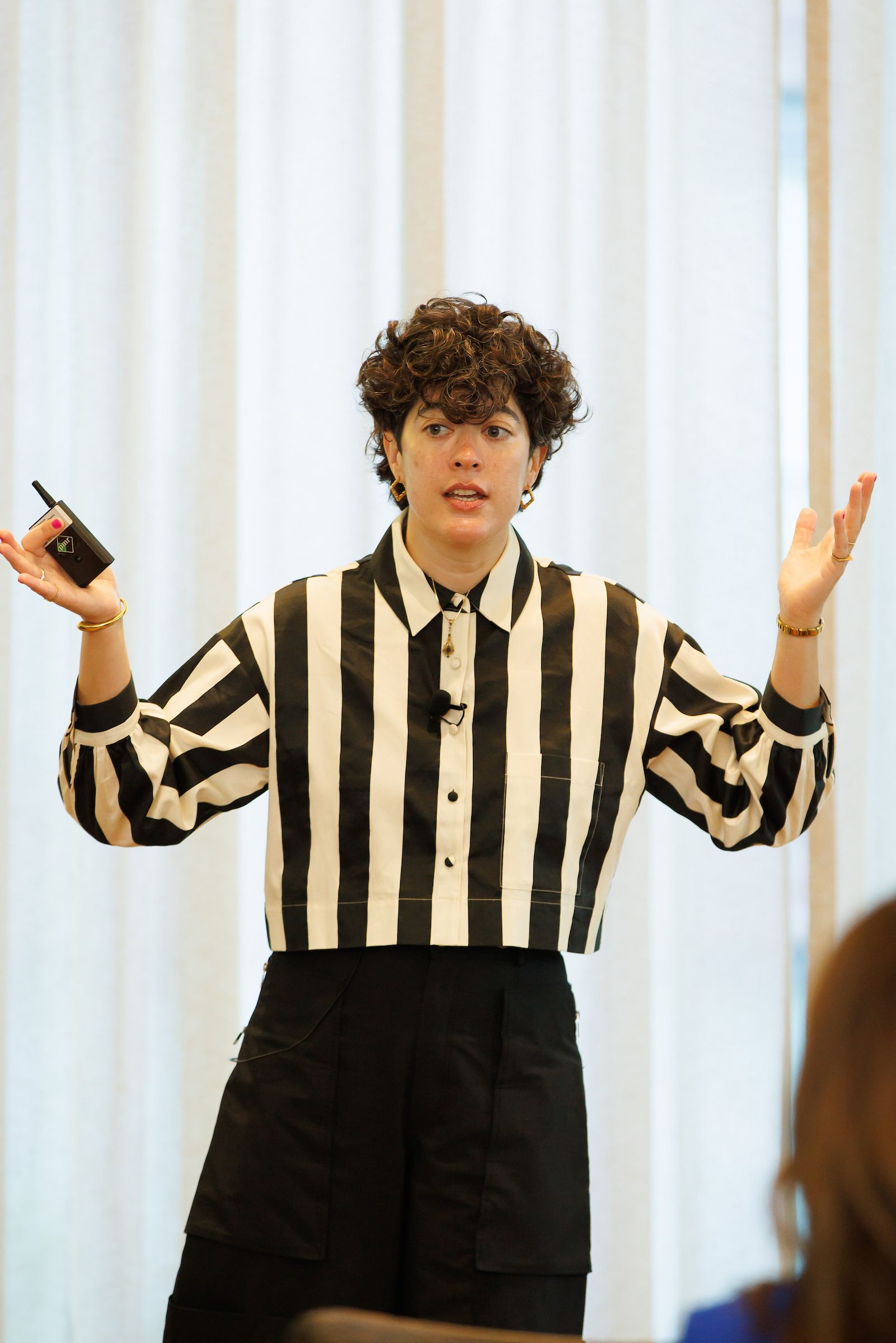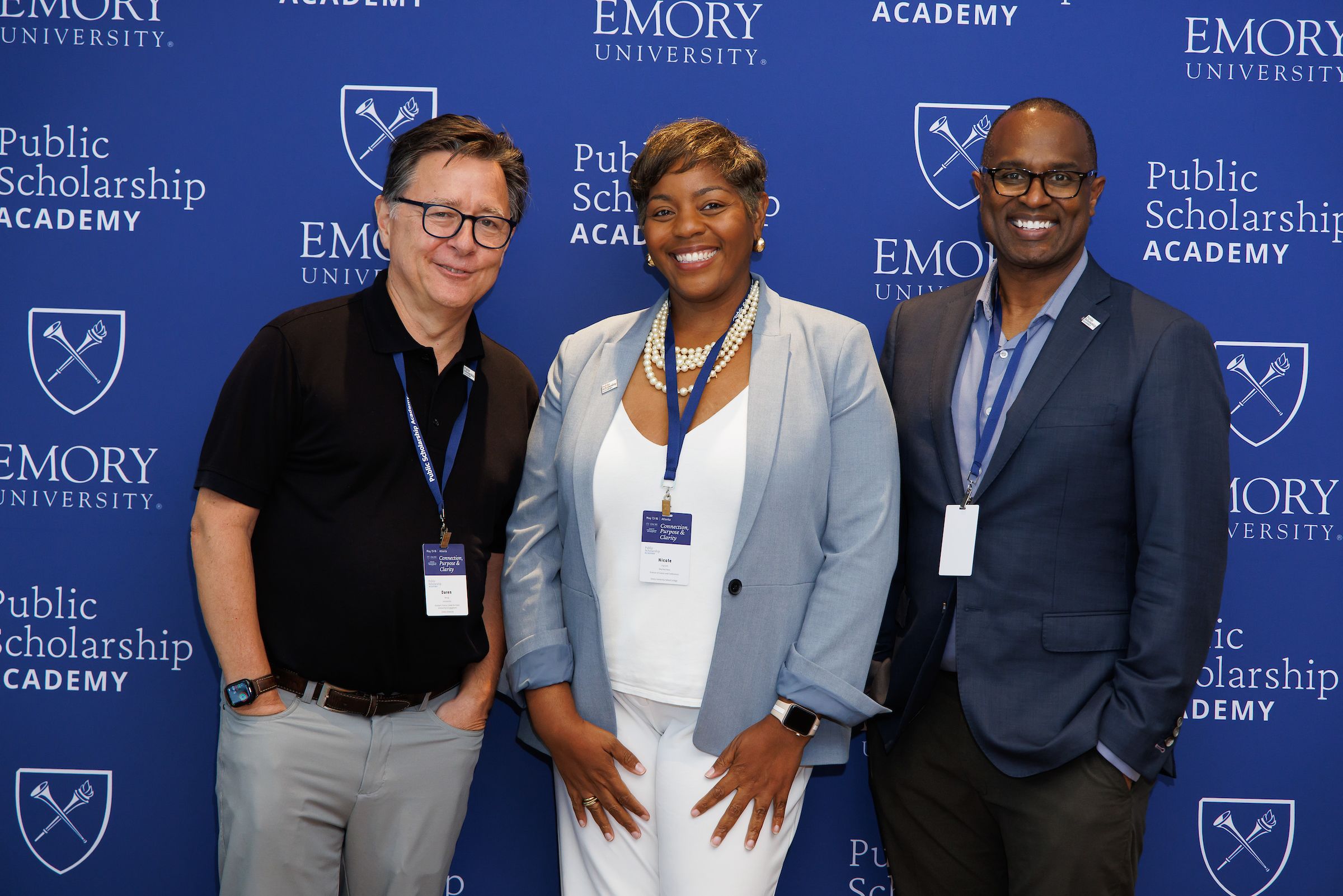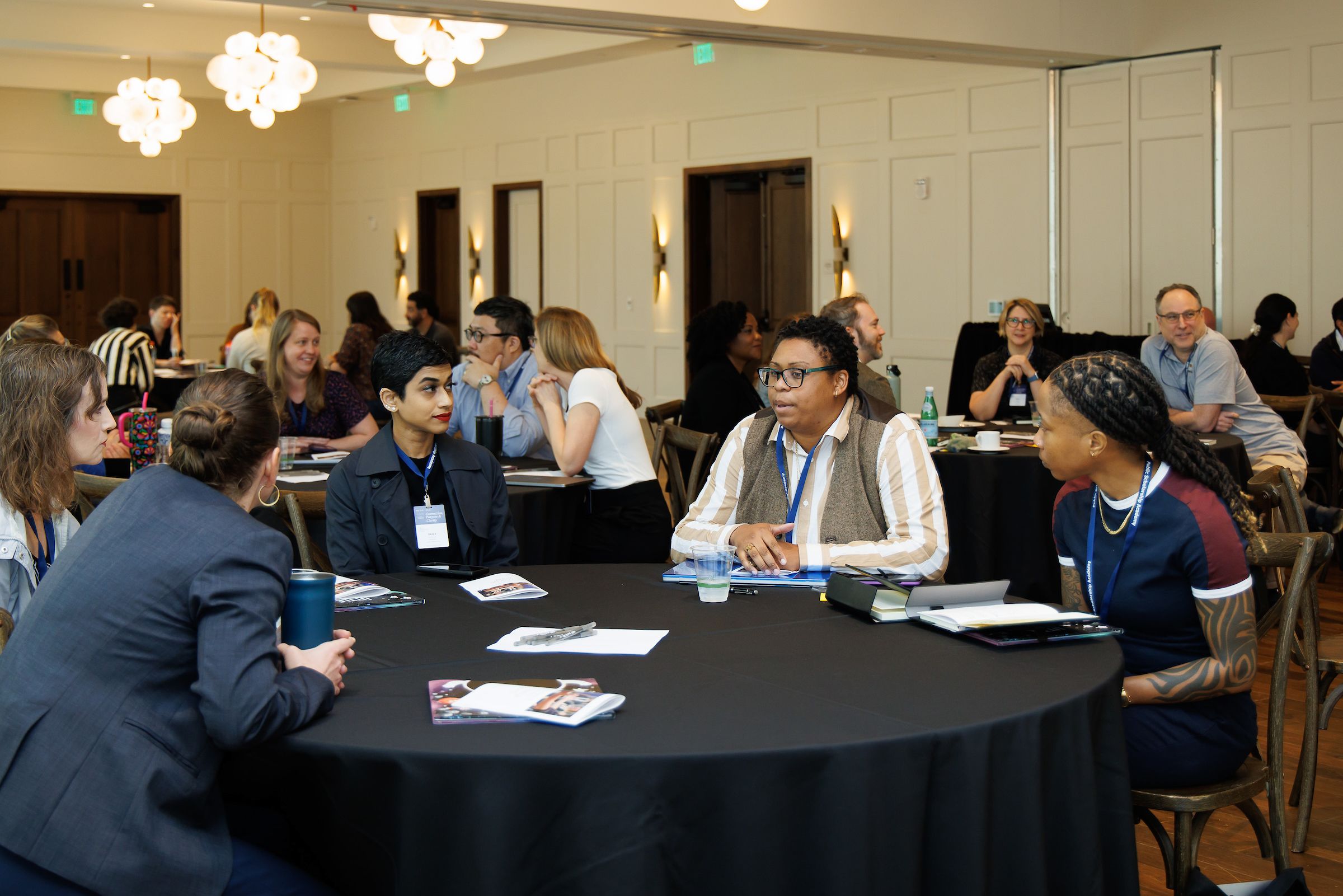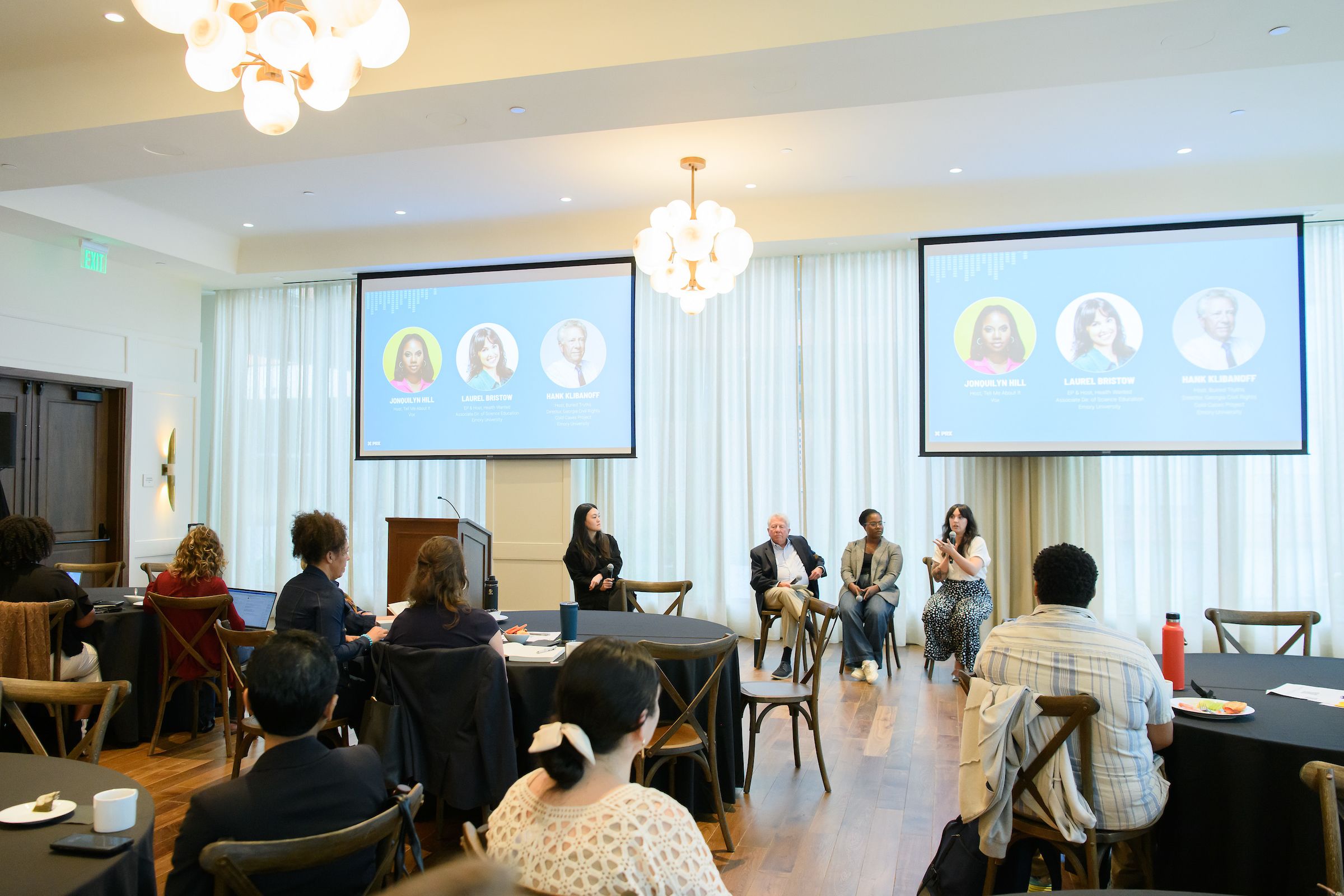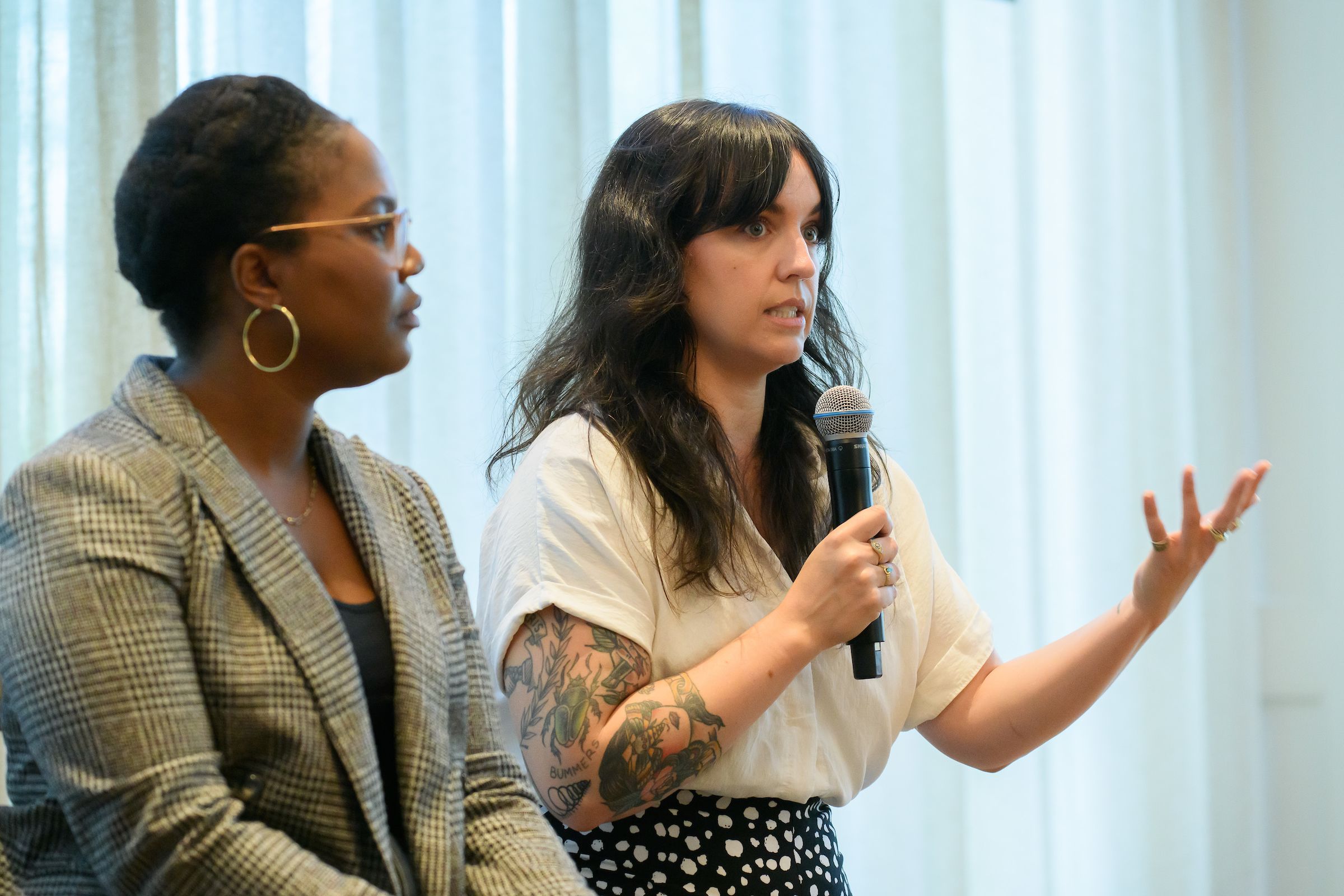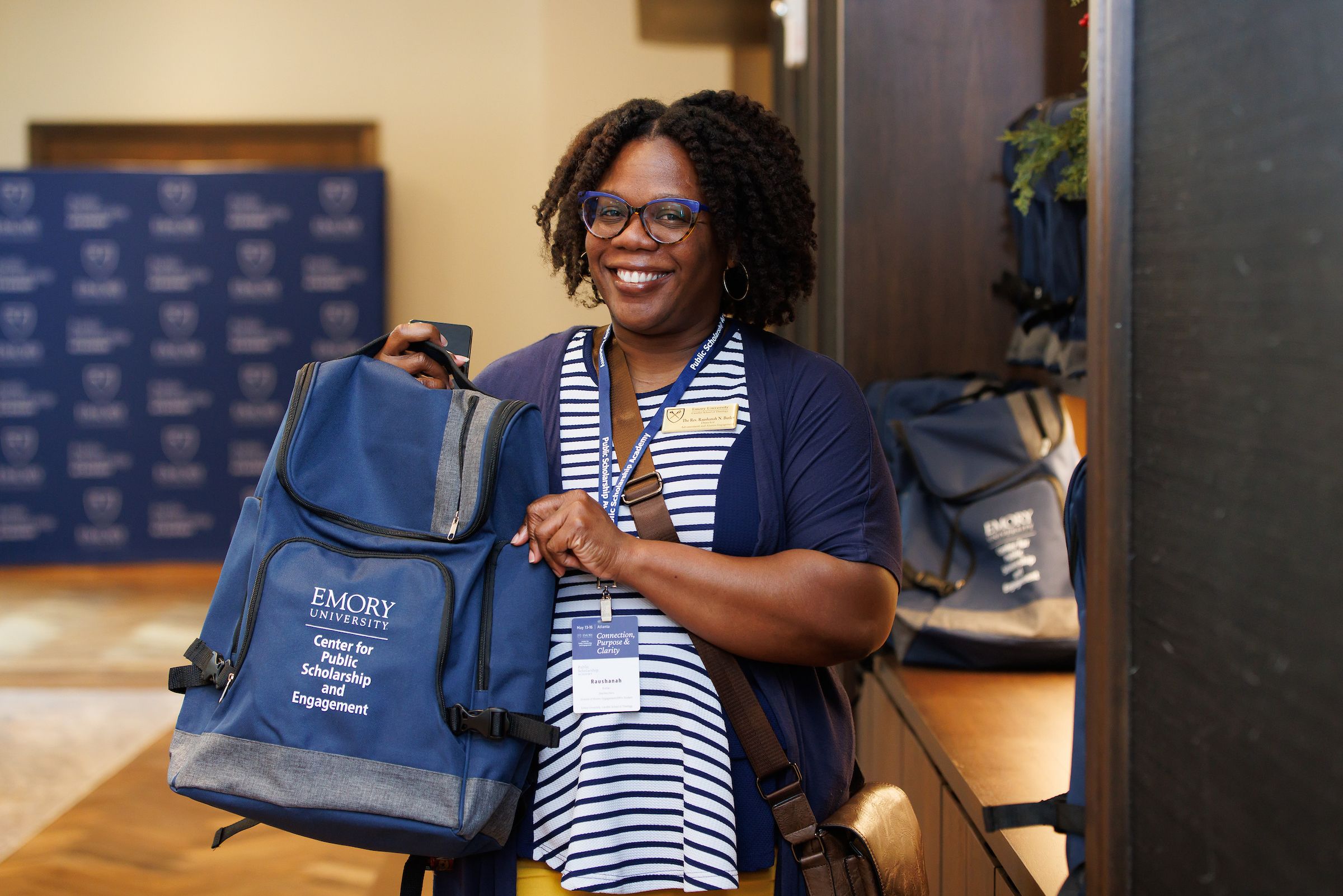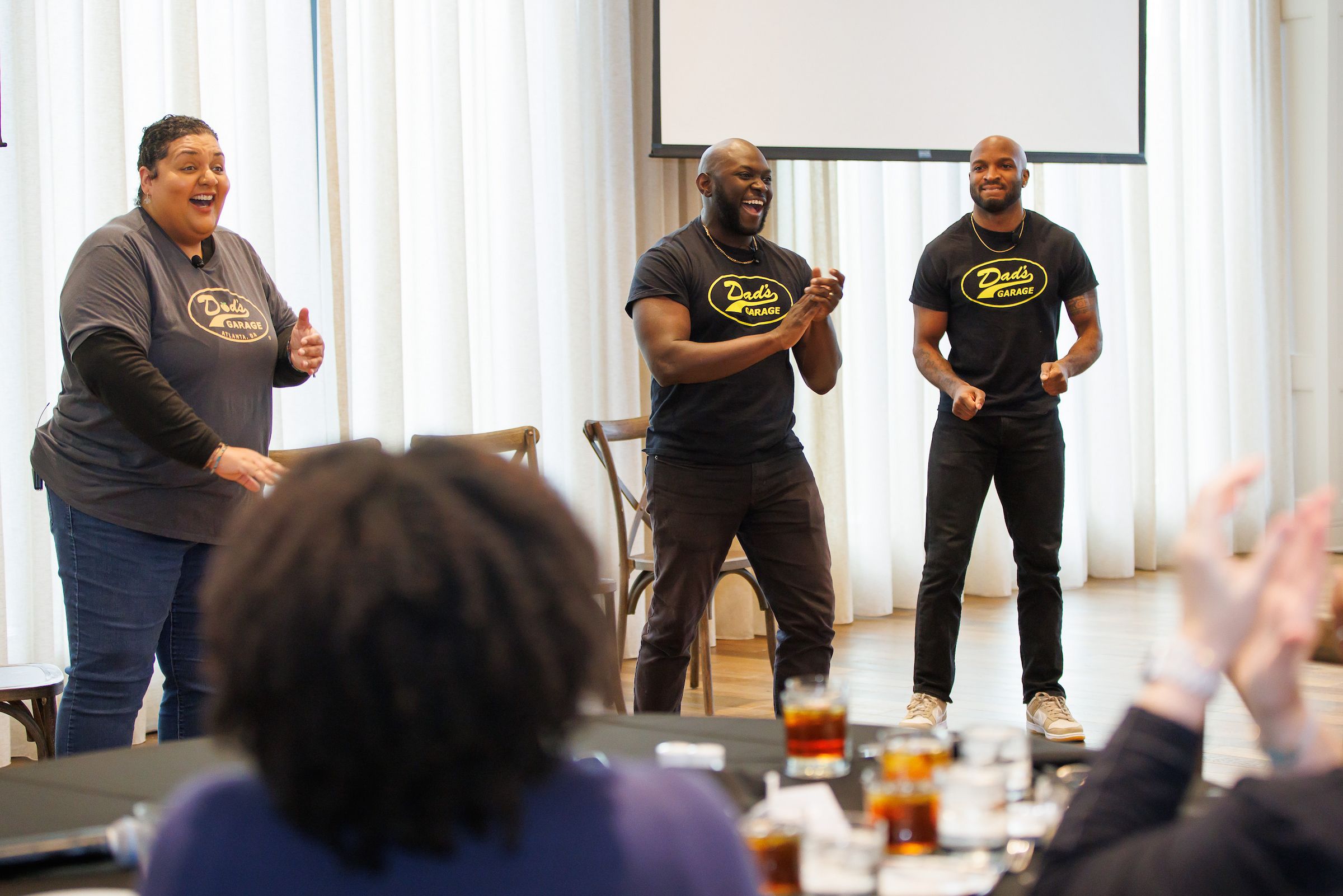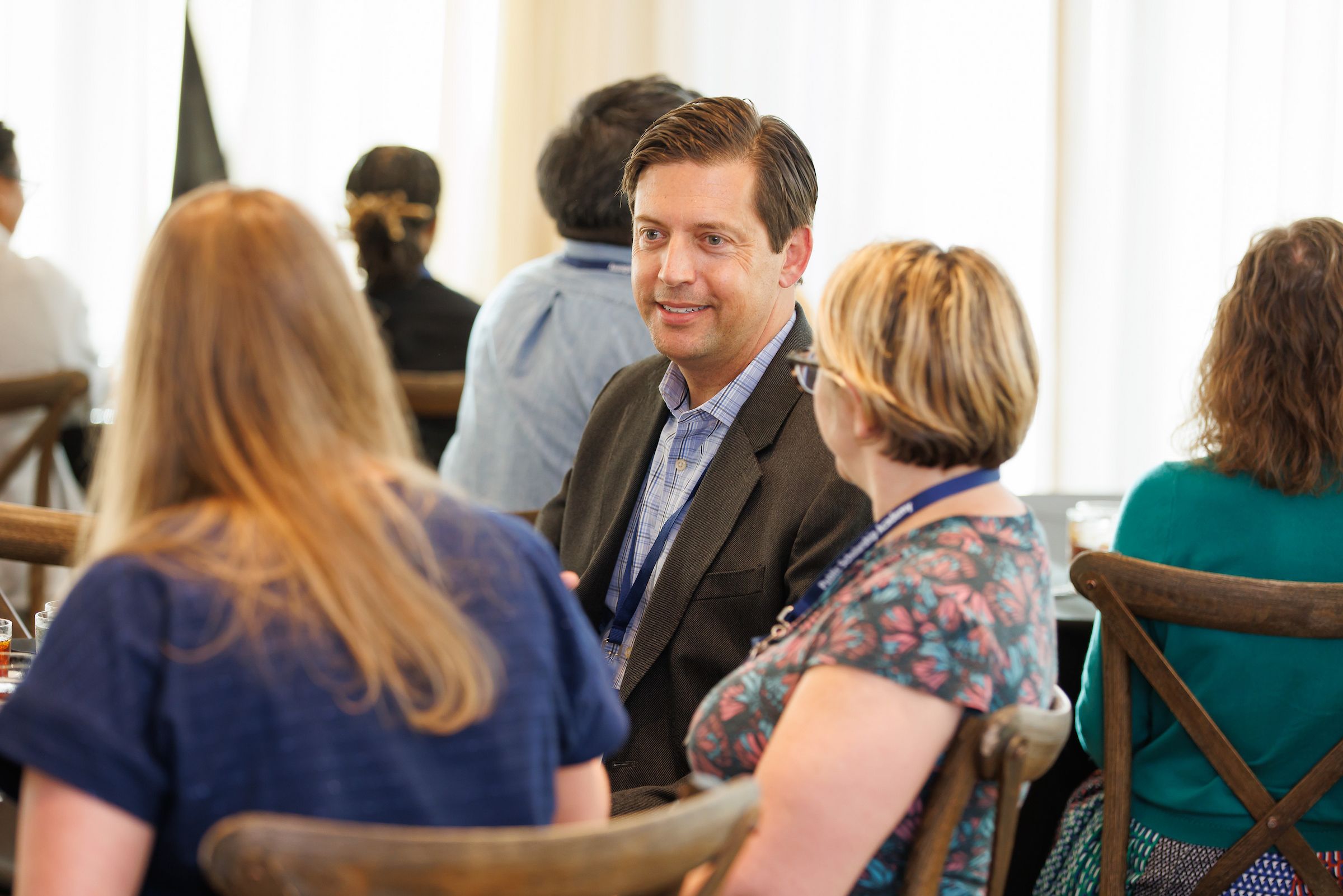Emory Public Scholarship Academy unleashes power of faculty storytelling

Emory Public Scholarship Academy unleashes power of faculty storytelling

The spirited uproar from the banquet hall compelled Kenneth Carter to peek through the swinging doors for a glimpse at the commotion. He was thrilled by what he saw: a group of about 30 scholars energized, on their feet, and committed to an exercise on applying improv comedy techniques to everyday conversation.
In mid-May, the select group of professors came together from all over the country — and from all nine schools and colleges that make up Emory — for three days of workshops through the inaugural Public Scholarship Academy. The academy, part of Emory’s Center for Public Scholarship and Engagement, is designed to help faculty communicate complex academic ideas with the public.
“As a psychologist, I love and understand the power of stories and narrative,” says Carter, the center’s founding director and Charles Howard Candler Professor of Psychology at Oxford College. “To see faculty — physicians, sociologists, classics professors — thinking about how to describe their life’s work in a way that can be understood by their communities, that was inspiring to me.”
“It's a very vulnerable thing to communicate what you do to the public," says Kenneth Carter, director of the Center for Public Scholarship and Engagement. “It takes a bit of courage and some skills and inspiration. I think creating this safe space to learn those skills will help with that inspiration and courage.”
“It's a very vulnerable thing to communicate what you do to the public," says Kenneth Carter, director of the Center for Public Scholarship and Engagement. “It takes a bit of courage and some skills and inspiration. I think creating this safe space to learn those skills will help with that inspiration and courage.”
The academy is one of the center’s two flagship programs, along with the annual Ideas Festival Emory. Deborah W. Bruner, Emory senior vice president for research, says the academy reflects the university’s core mission.
“The training that Dr. Carter and the Public Scholarship Academy are providing is not just important, it is critical, as faculty are at the forefront of rebuilding public trust in science and academic scholarship,” she says. “This training will help faculty and staff communicate in lay terms how research improves lives, health and humanity, and powers progress. It really is one of the most important things we can be doing right now.”
Molly Webster, a Peabody Award-winning science journalist and producer of the hit podcast “Radiolab,” delivered the keynote address at this year’s academy.
Instructors from the Alan Alda Center for Communicating Science got scholars on their feet to learn how tools of improv comedy can be applied to public scholarship.
Instructors from the Alan Alda Center for Communicating Science got scholars on their feet to learn how tools of improv comedy can be applied to public scholarship.
The event featured storytelling and improv sessions with trainers from Stony Brook University’s Alan Alda Center for Communicating Science and the Atlanta-based improv troupe Dad’s Garage. Faculty also took deep dives into exercises such as being interviewed by a journalist, writing an op-ed and using social media, guided by experts from TVP Communications, a company that specializes in media-relations support for higher education.
PRX, owner of one of the nation’s largest podcast catalogues, led a workshop on podcasting and a panel with audio storytelling experts. The panel included two Emory podcast stars: Laurel Bristow, associate director of audience development at the Rollins School of Public Health and host of “Health Wanted” on WABE, and Hank Klibanoff — teaching professor in the English department, Pulitzer Prize-winning journalist and host of “Cold Cases,” also on WABE. Jonquilyn Hill, host of the Vox podcast “Explain it to me,” rounded out the line up.
Members of the improv troupe Dad's Garage performed on the academy's opening night and shared tips for telling stories on the fly.
Members of the improv troupe Dad's Garage performed on the academy's opening night and shared tips for telling stories on the fly.
The power of storytelling
Carter says a key goal of the annual academy workshops is to “unleash the power” of stories behind academic research.
It’s personal for him. Even as a child, Carter recalls being influenced by the experts he encountered through mass media: “I wanted to be a psychologist ever since I was in the fifth grade,” he says. “A lot of that inspiration came from the public realm. It didn’t come from reading a research article.”
He also says it’s important for scholars to serve as trusted voices in the community regarding their areas of expertise, whether it’s in science or the humanities: “The academy provides faculty a platform to enhance their ability to disseminate what they know so that they can expand their influence.”
Deepa Das Acevedo, an associate professor at Emory Law, is a recipient of the university’s research impact faculty fellowship, designed to support scholars sharing the real-world benefits of their work. The fellowship is administered by the Office of the Senior Vice President for Research, which also partnered with the center to sponsor all Emory participants in the academy.
Das Acevedo participated in this year’s academy as part of her fellowship.
One of her research areas is faculty tenure as a labor protection. When communicating about the subject, she says she keeps four key audiences in mind: fellow faculty, students and their parents, policy analysts who liaise with public legislators and the legislators themselves.
The more these audiences understand her research, Das Acevedo says, the better it is for the higher-education landscape as a whole.
“I can reach them through things like podcasts and public talks,” she says. “Part of the reason I’m here is to learn how to do that.”
Deepa Das Acevedo (left) looks forward to applying lessons from the academy to her research on faculty tenure as a form of labor protection.
Deepa Das Acevedo (left) looks forward to applying lessons from the academy to her research on faculty tenure as a form of labor protection.
She particularly enjoyed the media-training workshop, which covered common pitfalls for academics when conversing with journalists. One exercise was to consider how different news outlets would cover the end of the world — and how one might tailor their message to reach these different audiences.
“It was fun but also a very concrete way of thinking about things I vaguely knew but didn’t have the language for,” she says. “It helps me frame my own pieces going forward.”
In her keynote, Webster shared her own experiences communicating complex ideas. She cited an example from 2015, when “Radiolab” journalists worked with scientists to find ways to help lay audiences understand the term epigenetics, or changes in gene expression that don’t affect core DNA.
The journalists and scientists went back and forth with ideas for how to clearly convey the concept: it’s a blanket on the DNA, it’s like peanut butter and jelly but not sticky, it’s like a conductor and an orchestra but not quite so elaborate.
They ultimately decided to explain the function of epigenetics through the metaphor of grammar. Just as grammar provides order and direction to a fixed sequence of words in a sentence, epigenetics dictates how genes in a fixed sequence of DNA are used and expressed. The comparison now commonly appears in public discussions of the subject.
Teresa Valerio Parrot, founder of TVP Communications, guided participants through exercises on media relations and connecting with journalists.
Teresa Valerio Parrot, founder of TVP Communications, guided participants through exercises on media relations and connecting with journalists.
Teresa Valerio Parrot, founder of TVP Communications, guided participants through exercises on media relations and connecting with journalists.
Teresa Valerio Parrot, founder of TVP Communications, guided participants through exercises on media relations and connecting with journalists.
Teresa Valerio Parrot, founder of TVP Communications, guided participants through exercises on media relations and connecting with journalists.
Teresa Valerio Parrot, founder of TVP Communications, guided participants through exercises on media relations and connecting with journalists.
In her keynote address, Molly Webster shared how she and her “Radiolab” team have helped the public understand complex stories of scientific research over the years.
In her keynote address, Molly Webster shared how she and her “Radiolab” team have helped the public understand complex stories of scientific research over the years.
Building a community of public-facing scholars
The Public Scholarship Academy and Ideas Festival will soon have what Carter calls a “symbiotic” relationship. While the academy offers communications training following the spring semester, the Ideas Festival, held each fall, brings together experts from across disciplines to share their research with the public in engaging and meaningful ways.
“They will feed each other,” Carter says. “We hope to have some participants from the academy present at the Ideas Festival and vice versa.”
As he establishes this pipeline, Carter emphasizes the importance of scholars from Emory and beyond feeling welcomed and supported by these programs.
“It's a very vulnerable thing to communicate what you do to the public,” he says. “It takes a bit of courage and some skills and inspiration. I think creating this safe space to learn those skills will help with that inspiration and courage.”
Connections formed at the academy don’t end with its final workshop, Carter adds. The center will match each scholar with a media coach and continue to check in with participants over the next three years. Participants can also keep up with one another via an online portal hosted by the center.
“I’m excited to see the results of the academy play out,” Carter says. “We’re creating a community of people to help each other and inspire each other as we do this important work.”
Supported by the Office of the Provost, the academy is an extension of the public scholarship taking place across the university, especially at the Center for Faculty Development and Excellence, Carter adds.
Academy participant Aaron Levine, Georgia Tech professor of public policy, appreciated the timing of the workshops: between semesters, when faculty have some breathing room to develop a strategy for public scholarship.
Academy participant and Georgia Tech professor Aaron Levine (center) says lessons from the academy will help scholars “communicate across divides” in the public sphere.
Academy participant and Georgia Tech professor Aaron Levine (center) says lessons from the academy will help scholars “communicate across divides” in the public sphere.
“Spending a couple days in the academy makes you think about public scholarship very consciously,” he says. “It’s valuable for Emory to provide this opportunity, because it’s a signal to Emory faculty and others that public scholarship is important and that it aligns with Emory’s mission and goals to have a broader impact.”
Levine says the academy’s improv sessions — led by an instructor from the Alda Center — especially resonated with him. “I enjoyed the idea of improv not as humor but as being present in the moment and engaging with those opposite you,” he says.
“If we want to build trust and communicate across divides,” he continues, “there is something to be said about really listening to and connecting with the person you’re conversing with.”
Story and design by Daniel Christian.
Photos by Joey Appie and E. M. Pio Roda. Lead image by Getty Images, uschools.
To learn more about Emory, please visit:
Emory News Center
Emory University


